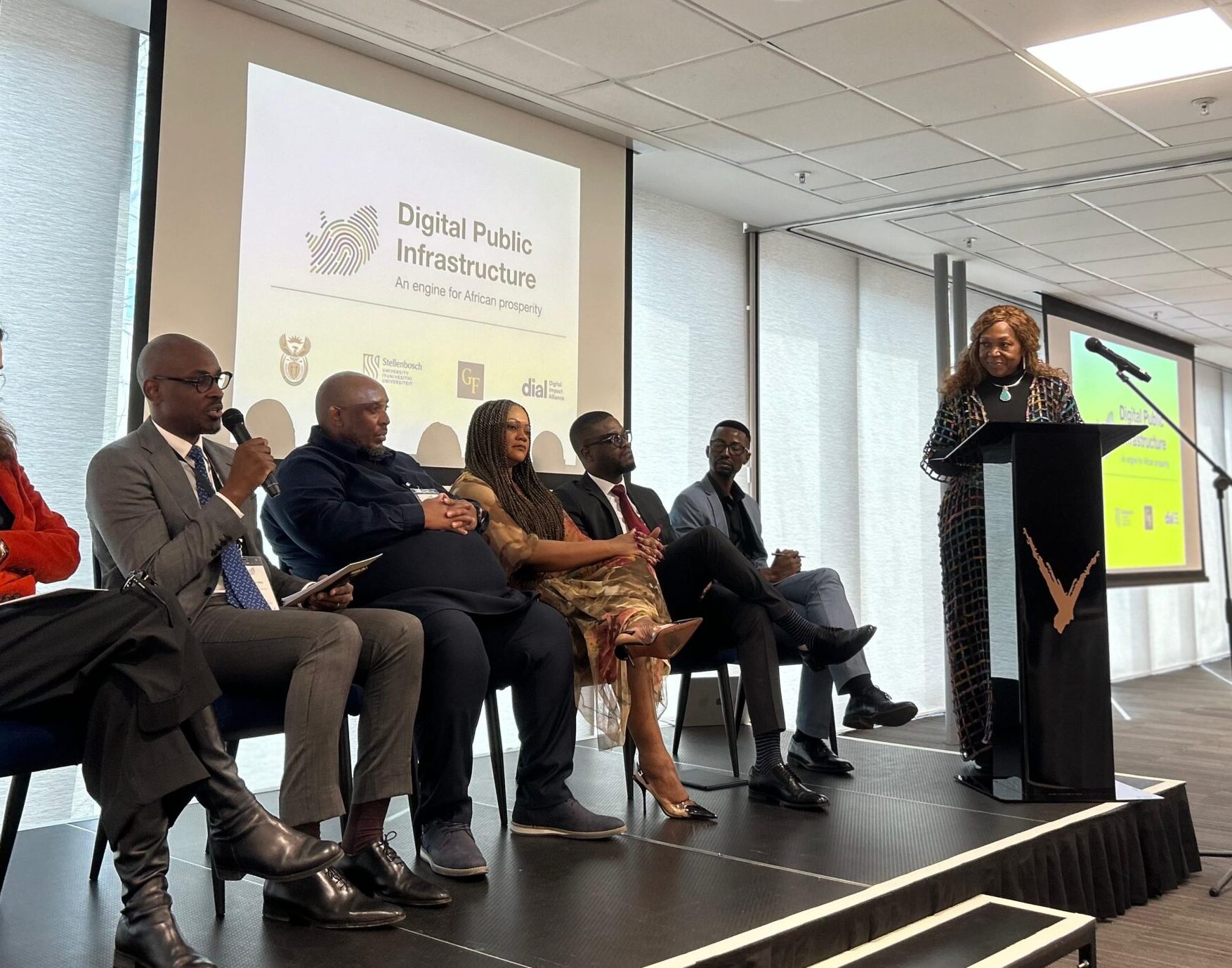On Thursday 26 June 2025 senior government officials and industry leaders from across Africa convened for a dialogue on the implementation and impact of Digital Public Infrastructure (DPI). Hosted by the South African Presidency, co-ordinated Policy Innovation Lab at Stellenbosch University’s School for Data Science and Computational Thinking and the Digital Impact Alliance and supported by the Gates Foundation, the event focused on the transformative potential of DPI in Africa.
A central focus was South Africa’s Digital Transformation Roadmap, an ambitious plan that, as participants affirmed, promises to deliver tangible value for citizens. The dialogue showcased DPI initiatives in multiple African countries and regional bodies, such as the EAC. The conversation also moved beyond technology to examine process, drawing lessons from civic tech. A pertinent recurring theme was collaborative development, a method that engages stakeholders throughout, continuously managing risks and ensuring tools are genuinely fit for purpose.
Discussions also included reflection on how DPI can accelerate the African Continental Free Trade Area (AfCFTA). In this context DPI could enable harmonised commerce and regional economic integration. Practically, the implementation of the AfCFTA’s Digital Trade Protocol requires foundational DPI to manage secure, cross-border digital payments and data sharing. Such infrastructure should also support typical DPI functions such as digital identity and payment systems that are necessary to create a functional single African market.
The dialogue further aimed to inform South Africa’s G20 agenda, where DPI lies at the heart of the Digital Economy Working Group. Through its presidency of the G20, South Africa aims to build on the successes of previous presidencies to unlock the developmental impact of DPI. Objectives include strengthening digital identity and payments infrastructure while preventing new forms of digital inequality.
During a panel discussion co-facilitated by Stellenbosch University’s Professor Willem Fourie on private sector and civil society contributions to DPI, the important role of the local and global private sector was highlighted. For DPI to be robust and context-relevant, a multiplicity of non-government actors must be involved. When a diverse ecosystem of services and partners is engaged appropriately it can yield a far more relevant and innovative public infrastructure than any single-provider solution.
The Policy Innovation Lab’s work, especially its emphasis on leveraging artificial intelligence to strengthen policymaking, connects directly to this complex undertaking. Building effective and equitable DPI requires precisely the intelligent, data-informed foresight that such new technologies can enable.
